As we head into the new year, all B2B marketing and sales leaders pass through an almost mandatory examination: How was sales pipeline growth this year, and what can be done to improve those numbers next year?
According to Gartner, 72% of chief sales officers (CSOs) marked improving pipeline creation as their top priority. Also, 70% of CSOs are investing or considering investments in the sales development function to generate pipeline.
“How are you getting in front of potential buyers to build pipeline today?” is one of the questions CIENCE sales development representatives (SDRs) use in their daily touchpoints. The very same question has pushed us to evolve our own models of pipeline generation, moving beyond the confines of what is traditionally considered cold outbound.
CIENCE is no longer just an outbound lead generation company. While that formula successfully served dozens of B2B companies of several industries over the last half-decade, the evolution of the B2B buyer”s journey forced us to look into pipeline creation from an entirely different perspective.
The new CIENCE aims to become an all-in-one partner for B2B companies, delivering a comprehensive, modular combo of tech and people, unlike any other pipeline-generating solutions available today. Here’s how our new model can work for your business too.
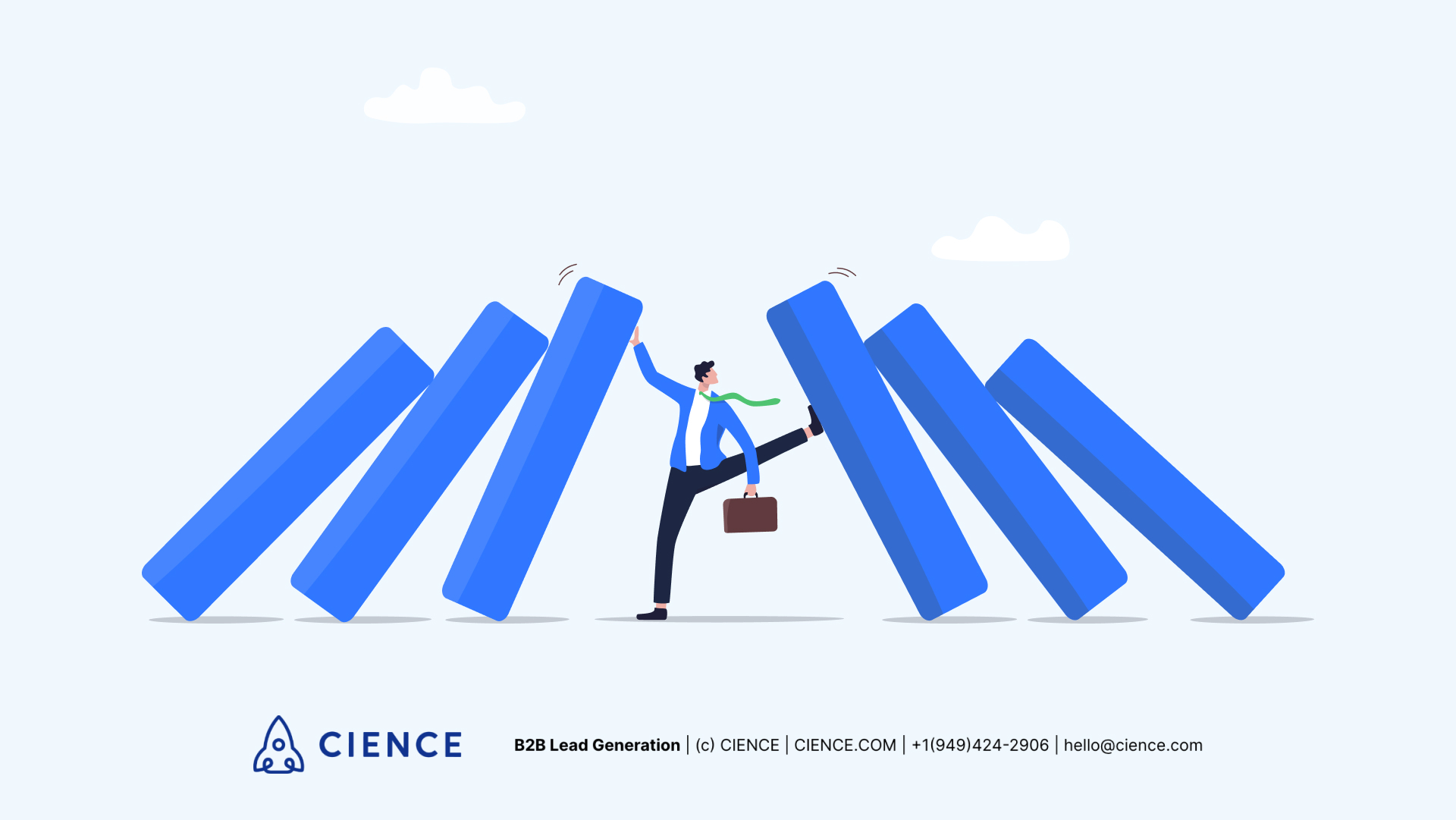
Prioritizing Lead Sources
To build pipeline, the first step is to narrow down the client’s total addressable market (TAM), which consists of X number of accounts (companies) and Y number of contacts (personas/titles) inside those companies. This gives us a total of Z ideal customer profiles (ICPs), which fuel every prospecting power plan. The CIENCE equation starts with the ICP:

An ICP can be defined as a detailed file containing the description of a company that would be a perfect match for your product. Specific criteria like revenue, size, background, geography, industry, and technology usage are considered for their crafting.
But before you can launch an account-based marketing strategy for your target account list, it is imperative to identify where those leads are coming from. This way, you can work with the low-hanging fruit, which translates to those potential buyers who are already looking for a product similar to yours.
CIENCE has designed an internal methodology to prioritize leads from different sources (or lead buckets, as we call them). This way, it is easier to define which in-market prospects are more ready to close a deal. The mentioned lead buckets are:
1. Inbound-led outbound
This first group checks almost every box of your ICP. These people are curious or slightly familiar with your brand, as they are already visiting your website, landing pages, and other inbound content you provide.
They require a holistic approach, coordinated demand-gen tools, and demand generation built-in. The degree of difficulty/success ratio in hiring a third-party partner that generates inbound-lead outbound leads is extremely high, mainly because identification of these leads requires advanced software tools, which then must be tied to an outbound follow-up motion.
2. Intent-led outbound
Such leads can be defined as possible buyers that still need to become familiar with your company. However, their web journeys and content consumed show the topics they are interested in (intent data signals) might match your solution.
Such prospects need to be intercepted through trigger-event lead generation strategies. They require the right tech stack and advanced ops to be found, and the degree of difficulty/success ratio in hiring a third-party partner to generate these leads is high.
3. List-led outbound
B2B contact records are collected and sold by many data providers out there. These leads need to be contacted through cold, multichannel interactions, and the probability that they are actively looking for your product or service is a random chance.
Pure lead gen plays need to be deployed to access list-led prospects. Nevertheless, the degree of difficulty/success ratio in accessing a third-party partner to generate such leads is relatively low, which may be why there are so many lead generation firms in the world today.

The New Phases of CIENCE
While our outbound services have helped thousands of B2B companies to connect with essential clients for over seven years, CIENCE’s own success with the lead prioritization above warranted a change in how we serve our clients. That’s why the CIENCE GO Data Platform was created.
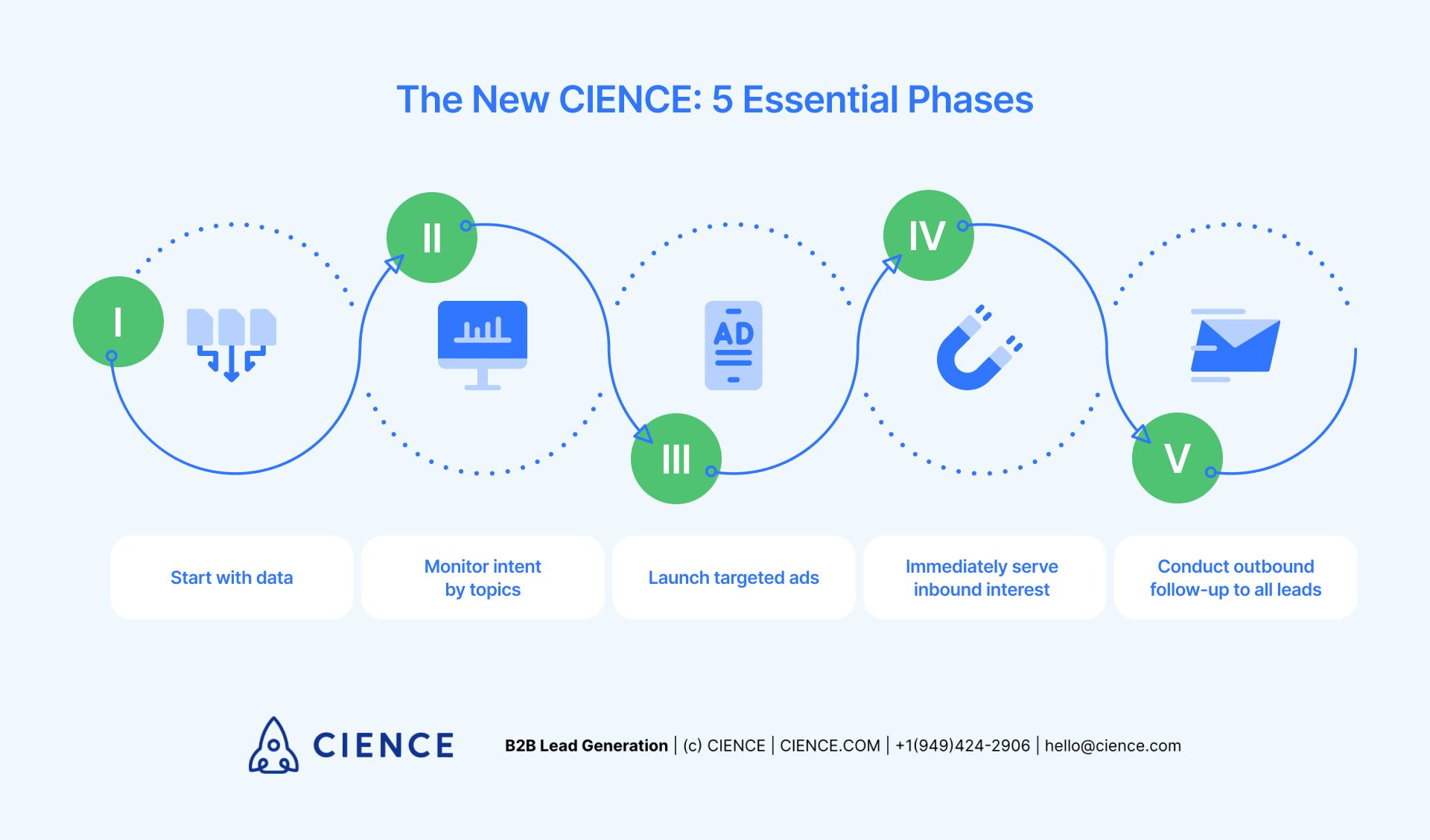
To generate a never-ending loop of meaningful prospects, it was necessary to dissect the critical moments involved in B2B lead generation and program a specific, unique platform to attend each phase of the prospecting process. This is how CIENCE GO tools adapt to every pipeline development step:
Phase I: Start with data.
After years of conducting tens of thousands of outbound marketing campaigns, CIENCE has managed to store and collect a massive data asset of four terabytes of input, which make a great TAM database for any B2B company.
CIENCE GO Data is a sales intelligence platform that organizes, filters, and grants access to over 300 million records of real-life validated leads from all industries that match preconfigured ICP criteria and sources dynamic audience lists for use in the following lead gen efforts.
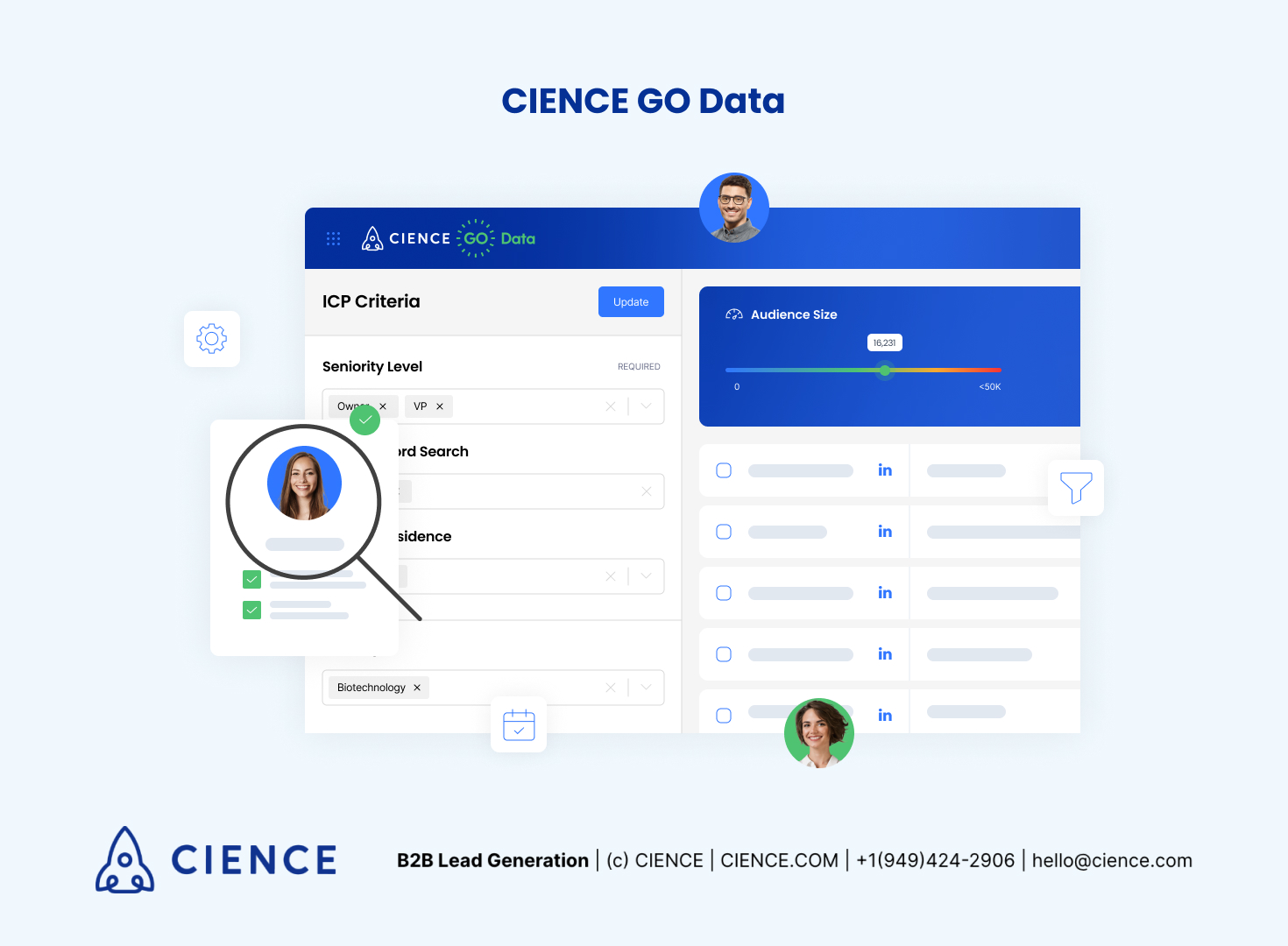
Phase II: Monitor intent by topics.
Every business has topics (keywords) their buyers associate with their category or business value proposition. The prospect records inside CIENCE GO Data are crossed with CIENCE GO Intent. This tool can monitor which companies start to become hot on the topics related to a particular company.
GO Intent analyzes billions of intent data signals from verified users, matches companies’ IP addresses, and tracks underlying buyer intent topics across the web. By matching users against your ICP, it is possible to prioritize in-market buyers for outbound outreach.
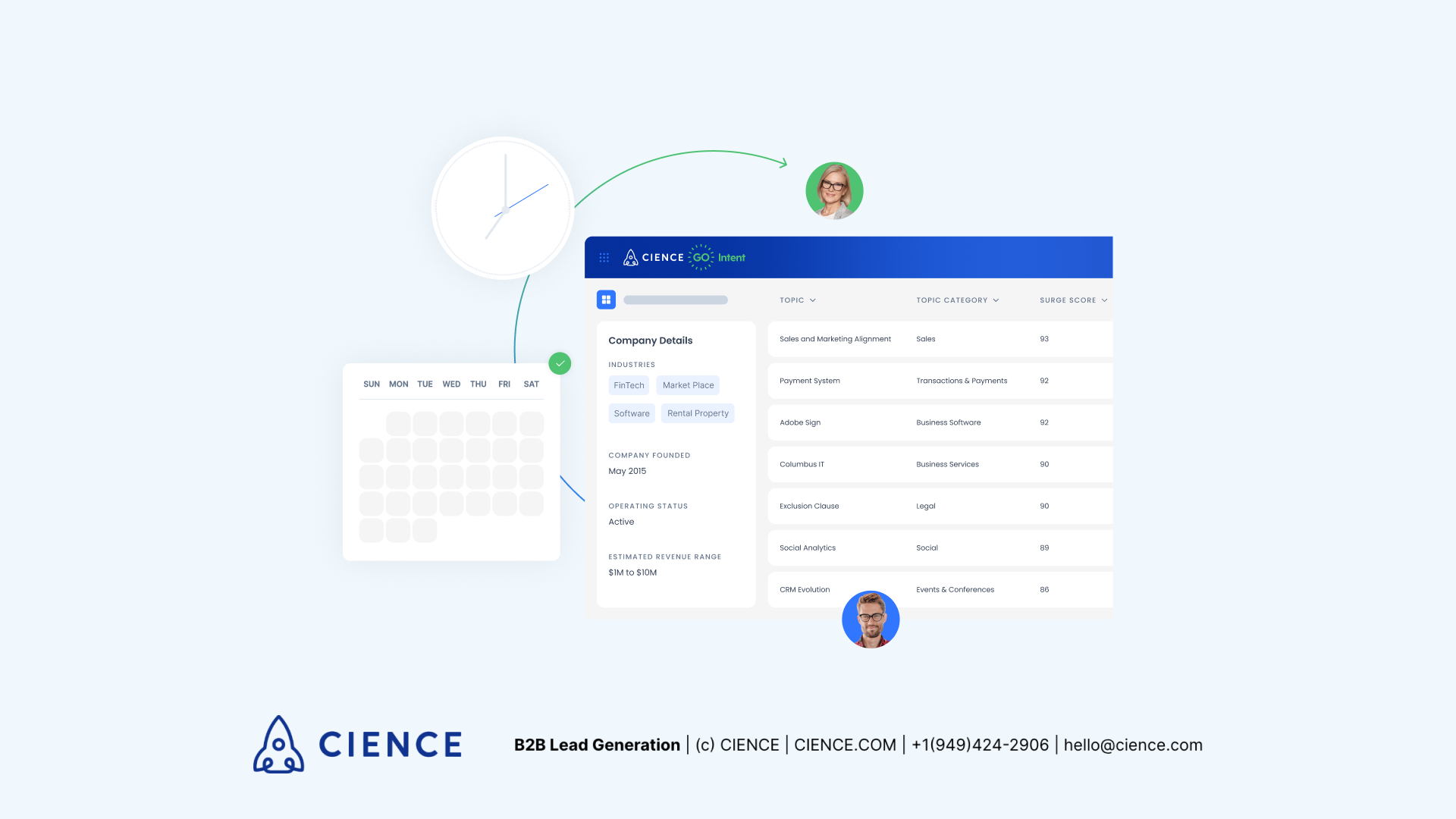
Phase III: Launch targeted ads.
Businesses benefit from greater awareness among their target audience. CIENCE GO Digital is able to stimulate demand by deploying display, video, or audio ads to generate clicks, which can also be considered actions of intent.
GO Digital is a demand-side platform (DSP) fed by CIENCE GO Data. That means that companies can personalize their ad campaigns depending on the segmented audiences that match their ICPs, improving the performance of their ads.
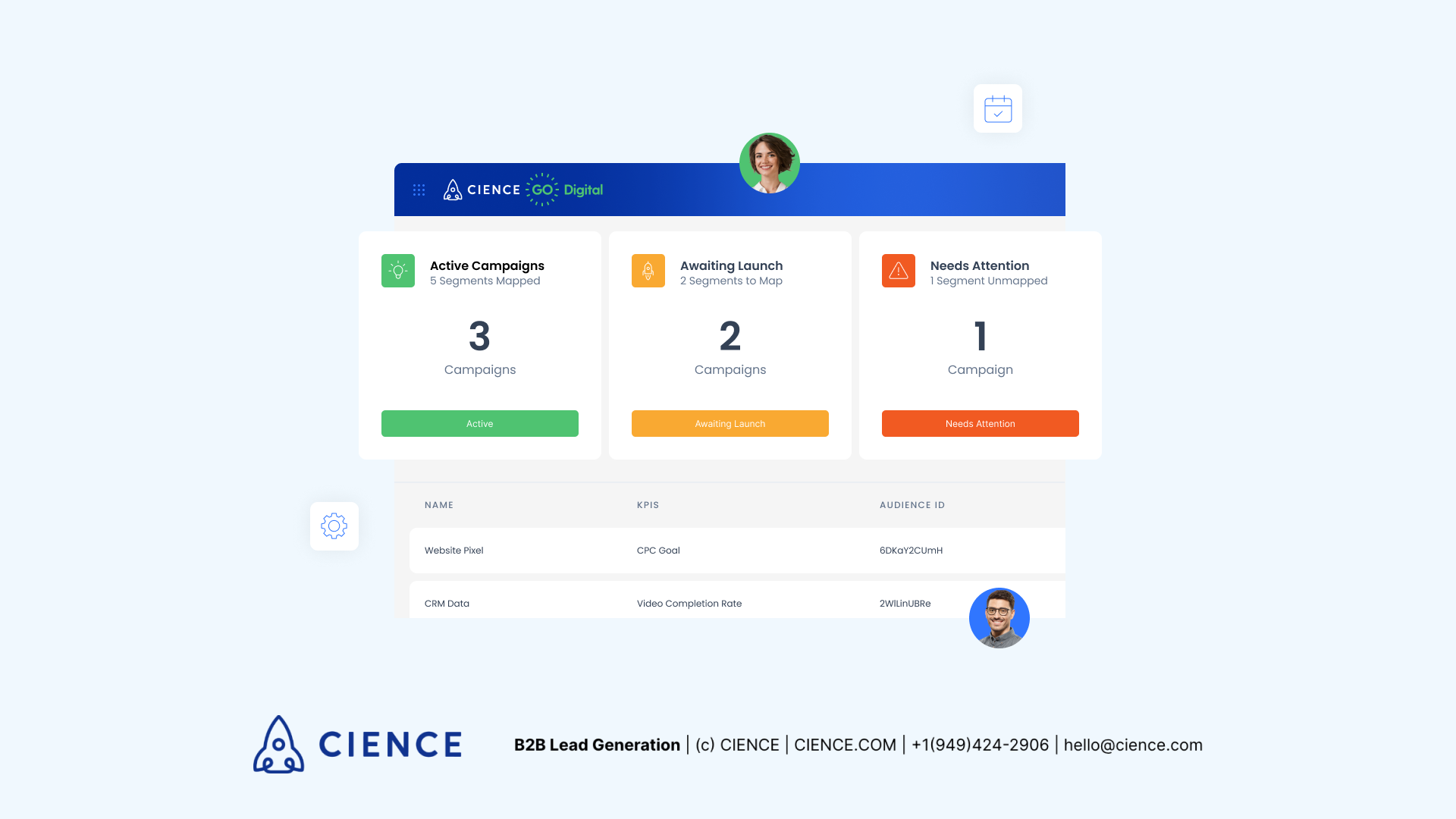
Phase IV: Immediately serve inbound interest.
Once prospects are inside a specific brand’s website, they know what that brand offers and want to learn more about how their needs could be solved. Companies must be prepared to process visitors’ data and engage them as effectively as possible using advanced tools:
- CIENCE GO Chat is an always-on, agent-enabled AI chatbot that promotes sales-focused conversations with users and allows prospects to book meetings with SDRs.
- CIENCE GO Show is a visual ID system that helps identify anonymous website traffic. The GO Show software recognizes companies, departments, seniority levels, and even individual contact details of web visitors.
- CIENCE GO Flow is a data ingestion engine for sophisticated, data-powered sales and marketing teams. The GO Flow streamer can deliver data batches to multiple destinations by setting up pre-established rules in the platform.
- CIENCE GO Schedule is a smart booking software that coordinates the team’s and lead’s existing calendars so meetings can be scheduled in a clean and straightforward way.
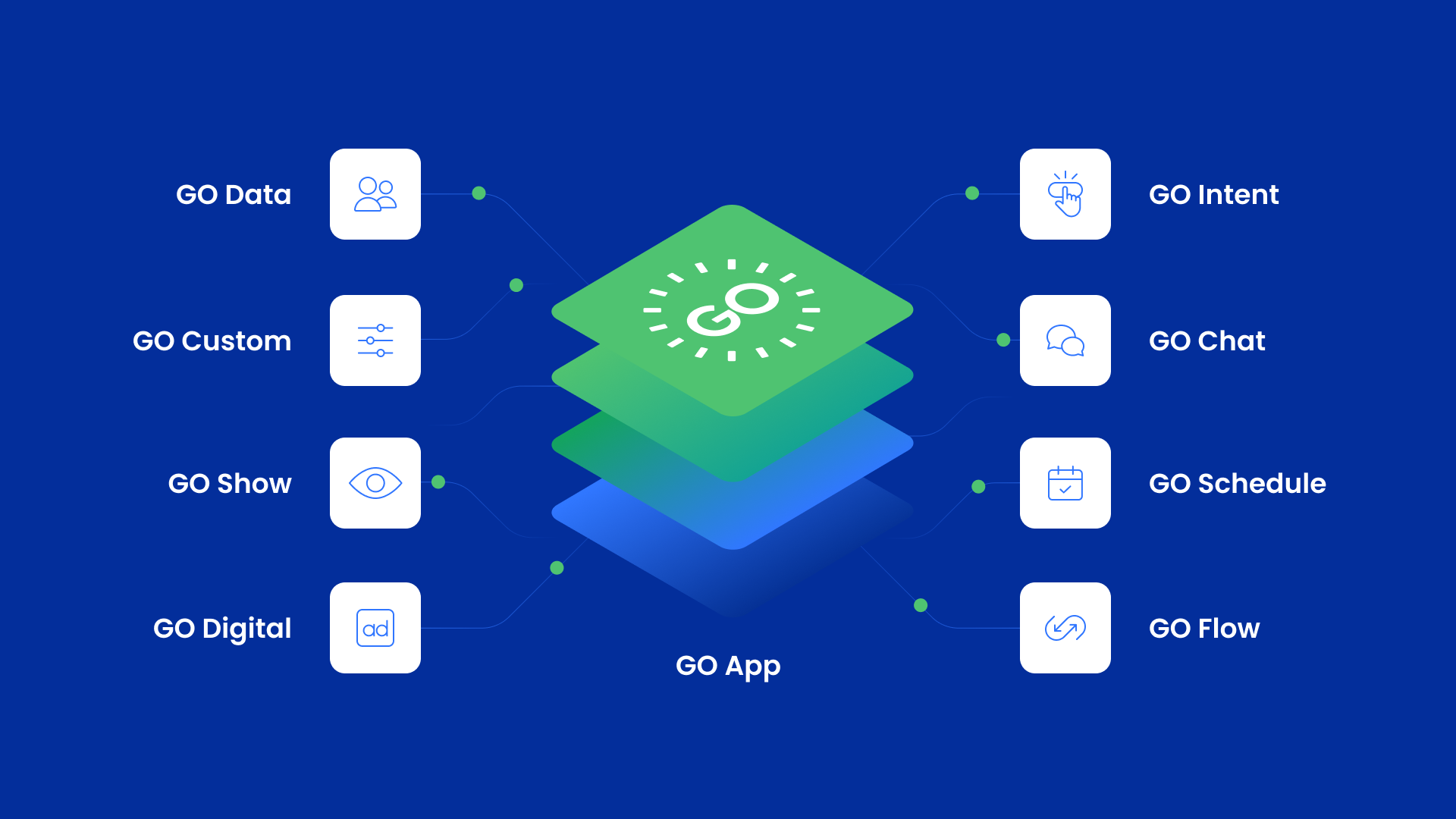
Phase V: Conduct outbound follow-up on all leads.
Sales conversations start here. Every business that works with CIENCE can run an outbound follow-up to any of their ICP that express inbound or intent interest signals.
Our multichannel approach guarantees sales-oriented sequences run against these individual contacts so appointments can be booked.
As an outbound expert, CIENCE manages specialized, trained teams to maximize pipeline-building efforts. We’ve included sales development specialists in each part of the prioritized engagement action:
- Sales development manager. Responsible for strategy and finding market signals. Owns the success plan and contract post the initial contract signature
- Campaign strategist. Creates industry-specific and persona-specific messaging based on the strategy outlined by the sales development manager
- Messaging specialist. Focuses on email, social media, personalization, and reply handling
- Calling specialist. An SDR that is an expert on the phone channel
- Web team. Responsible for the creation of custom landing pages for programmatic ads
- Team leaders and quality assurance team. Provide daily oversight and coaching
- Research/data. Responsible for delivering contacts, companies, and supporting data associated with an approved persona-based campaign
- Project manager. In charge of campaign deployment and project timeline ownership
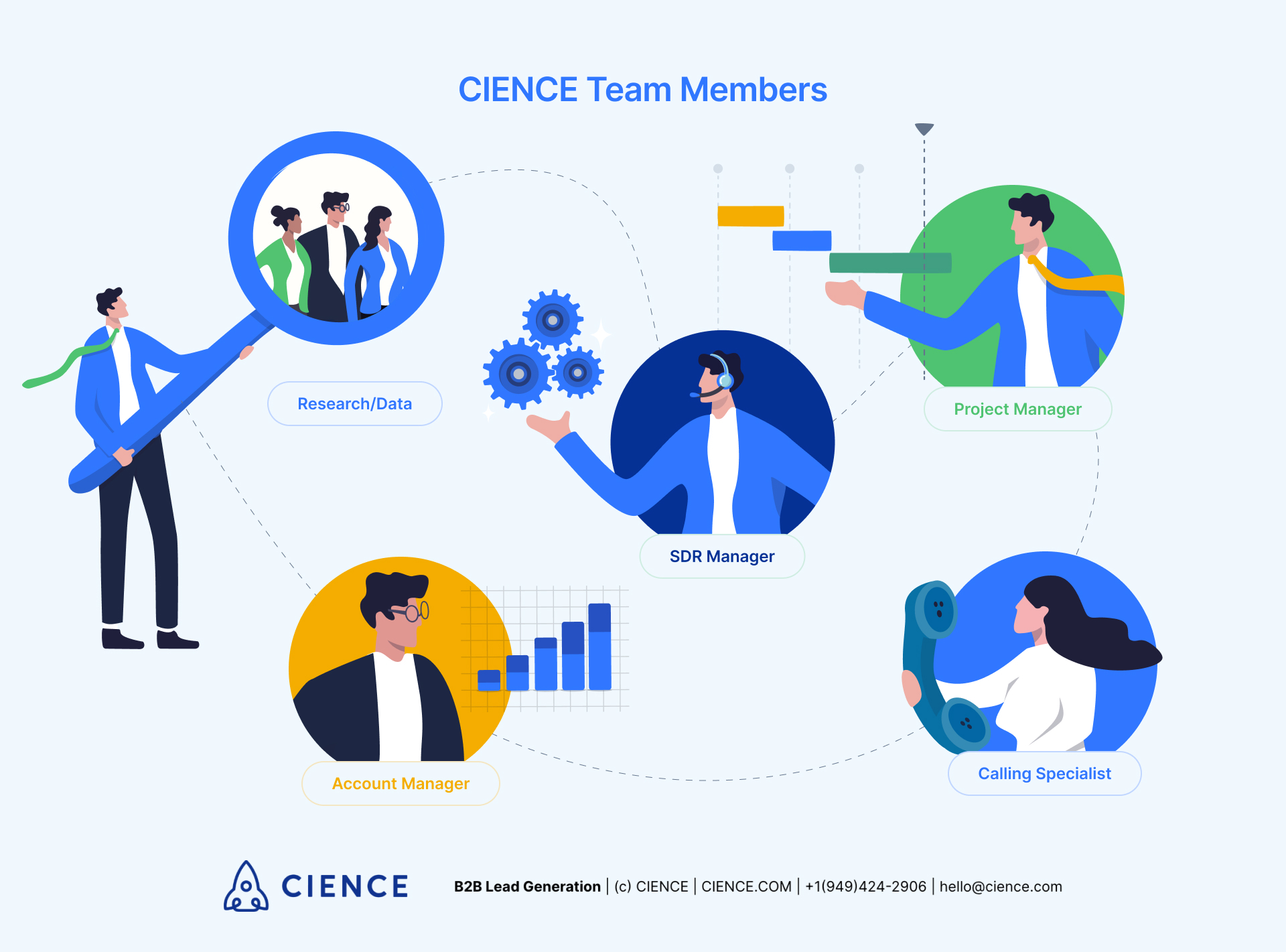
We’ve also added a full reporting suite to our offered inbound and outbound services. Hence, our clients have a clear view of the performance of every CIENCE GO tool, programmatic ad, and sales representative. These elements and many more compose the all-in new CIENCE experience.
Boost Your Pipeline Growth with CIENCE
If the future is anything like the present, B2B pipeline development will continue to be a top challenge for everyone involved. Nevertheless, the results driven by the CIENCE data-powered inbound and outbound formula make us believe that we have found a reliable system to keep on helping companies achieve their goals.
We are aware that the B2B lead generation process is ever-evolving. But we are also confident that CIENCE will find a way to adapt our technology, methodologies, and mindset to fulfill the needs of the B2B market just as we are doing now.










